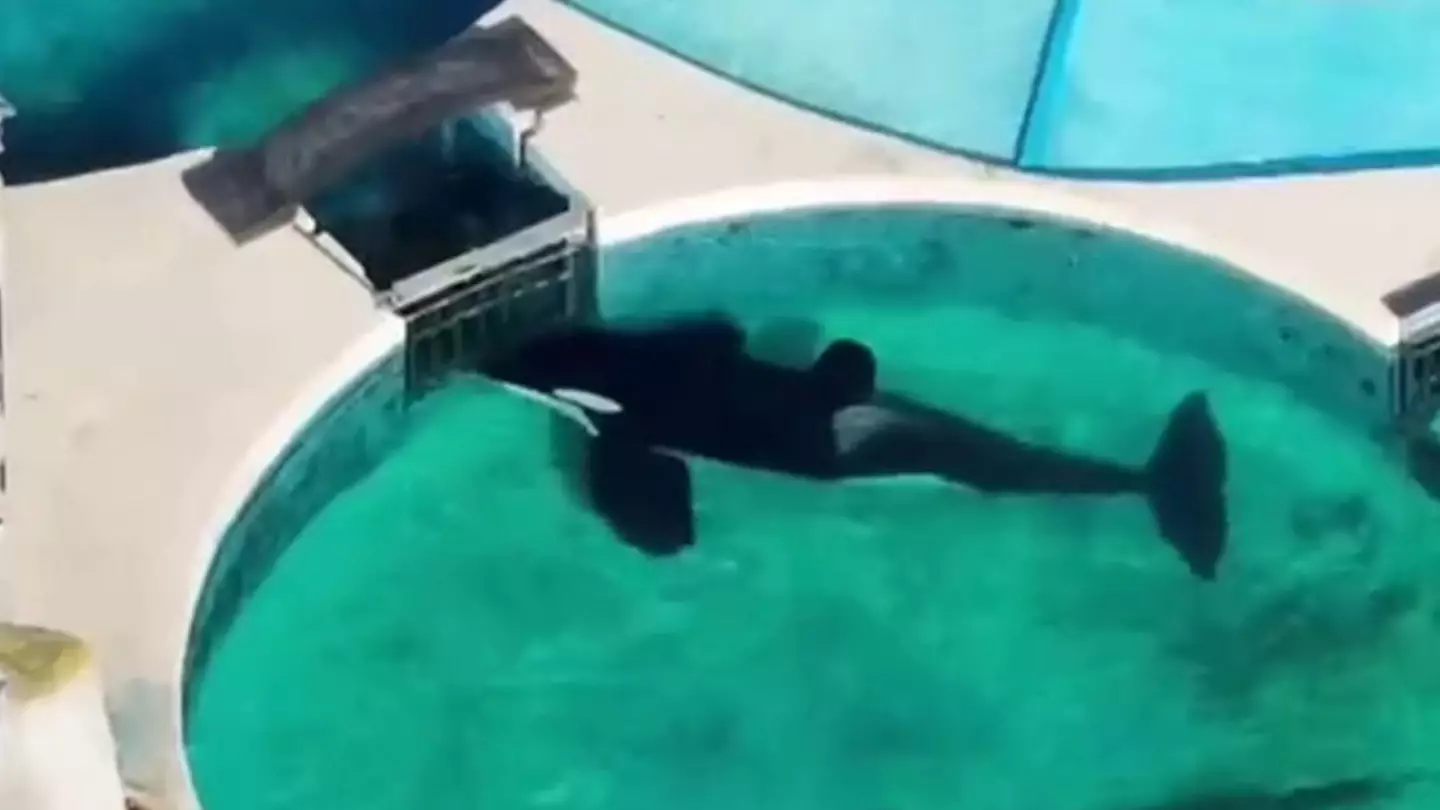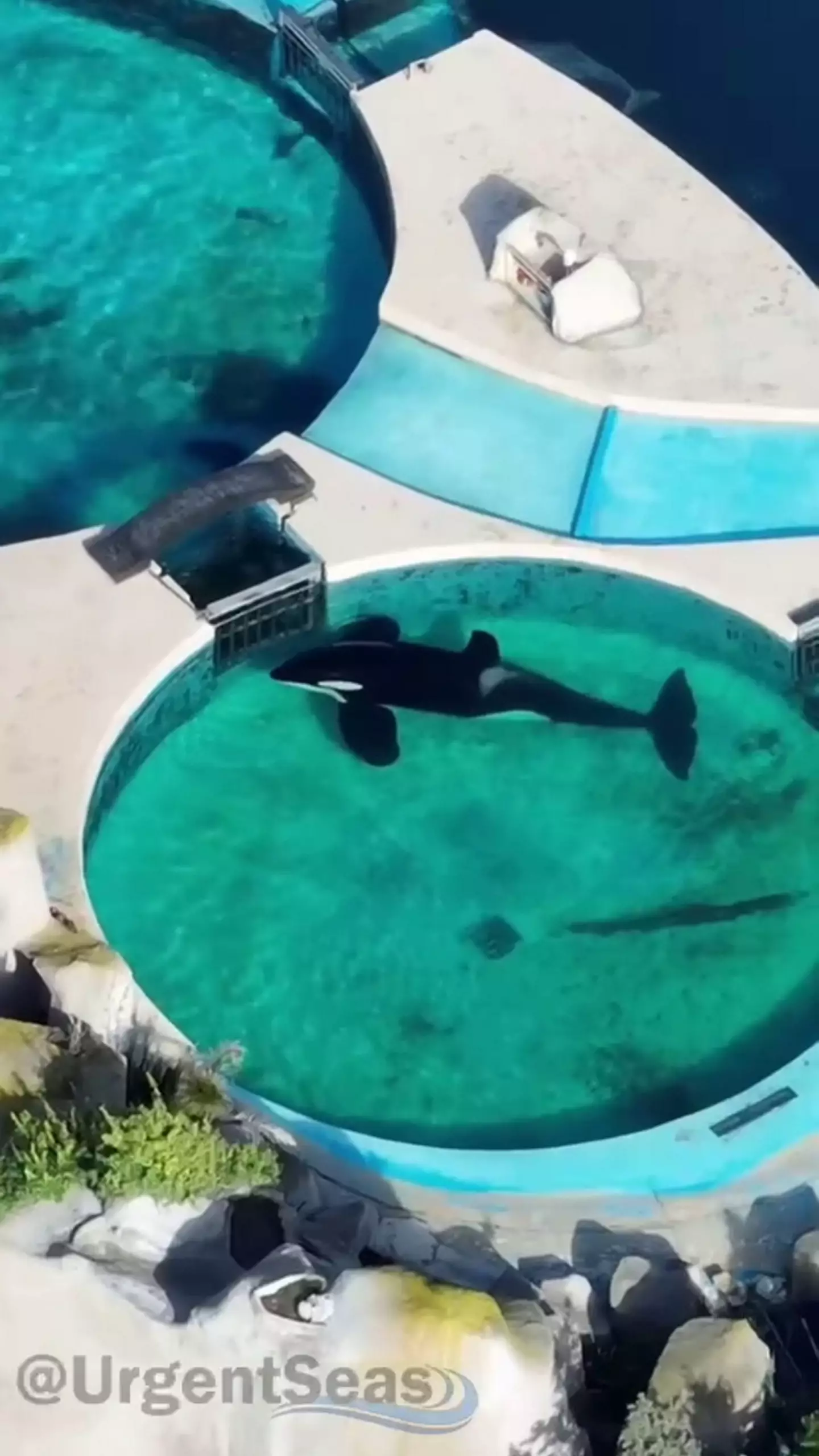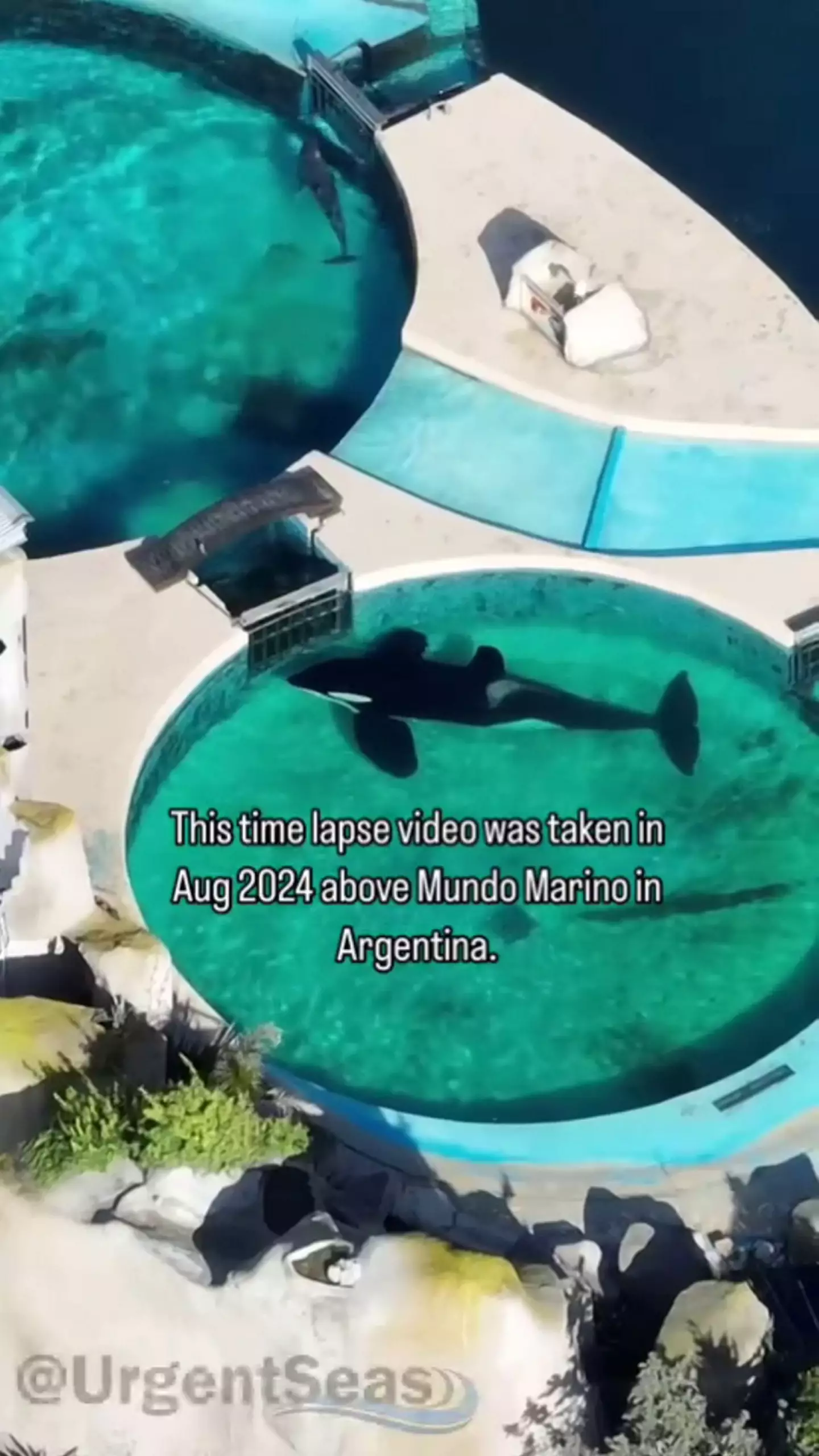
Heartbreaking footage shows a captive killer whale laying almost motionless in a tiny pool at Mundo Marino, Argentina's largest aquarium.
Kshamenk, 35, was first brought to the site in 1992 after being captured off the Samborombón Bay.
According to aquarium, the then three-year-old orca was discovered beached on the bay by fishermen and was with three other killer whales.
Advert
Kshamenk was then taken to his concrete tank at Mundo Marino in which he has spent the last 32 years.
His tank mate Belen passed away in 2000 aged just 13, which means the last 24 years of Kshamenk's life have been spent in total isolation from his own species.
Since then, the 35-year-old orca has spent every day in a cramped, shallow pool with little room to swim around.
He is the last remaining captive killer whale in Argentina.
UrgentSeas, a non-profit organization which aims to end marine captivity, is campaigning to free Kshamenk and take him to an open sanctuary with other orcas to socialize with.
On August 12, UrgentSeas captured a heartbreaking 24-hour timelapse video which shows Kshamenk laying motionless with his face pointed directly towards the enclosure's gate as though he's wanting to be let out.

A spokesperson from the organization said: "We continue to work with Argentinian activists and members of Congress to try to highlight and address his cruel world.
"He needs to be removed from his tiny concrete tank and to join other members of his species before it’s too late."
UNILAD has approached Mundo Marino for comment.
Despite the 'Blackfish effect', which was a surge in awareness and activism for captive orcas after the 2013 documentary aired, Kshamenk slipped through the cracks.
The hard-hitting film documents the controversial captivity of killer whales, and its dangers for both humans and the species.

Tilikum the killer whale was the focus of documentary, an orca who was kept in a tank at SeaLand in Canada with two much larger female orcas who would regularly attack him.
He was later moved to SeaWorld in Orlando after he and the two other orcas at SeaLand killed a young trainer.
While in Orlando, Tilikum killed another two people - a tragedy that Blackfish looks further into.
The large mammal died from a bacterial lung infection on January 6, 2017.
Blackfish boasts a near-perfect score of 99 percent on Rotten Tomatoes and is currently streaming on Netflix, Hulu and Fubo.
Topics: Animal Cruelty, News, World News, Animals